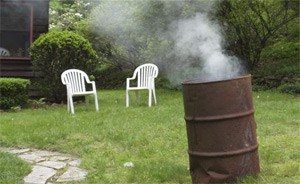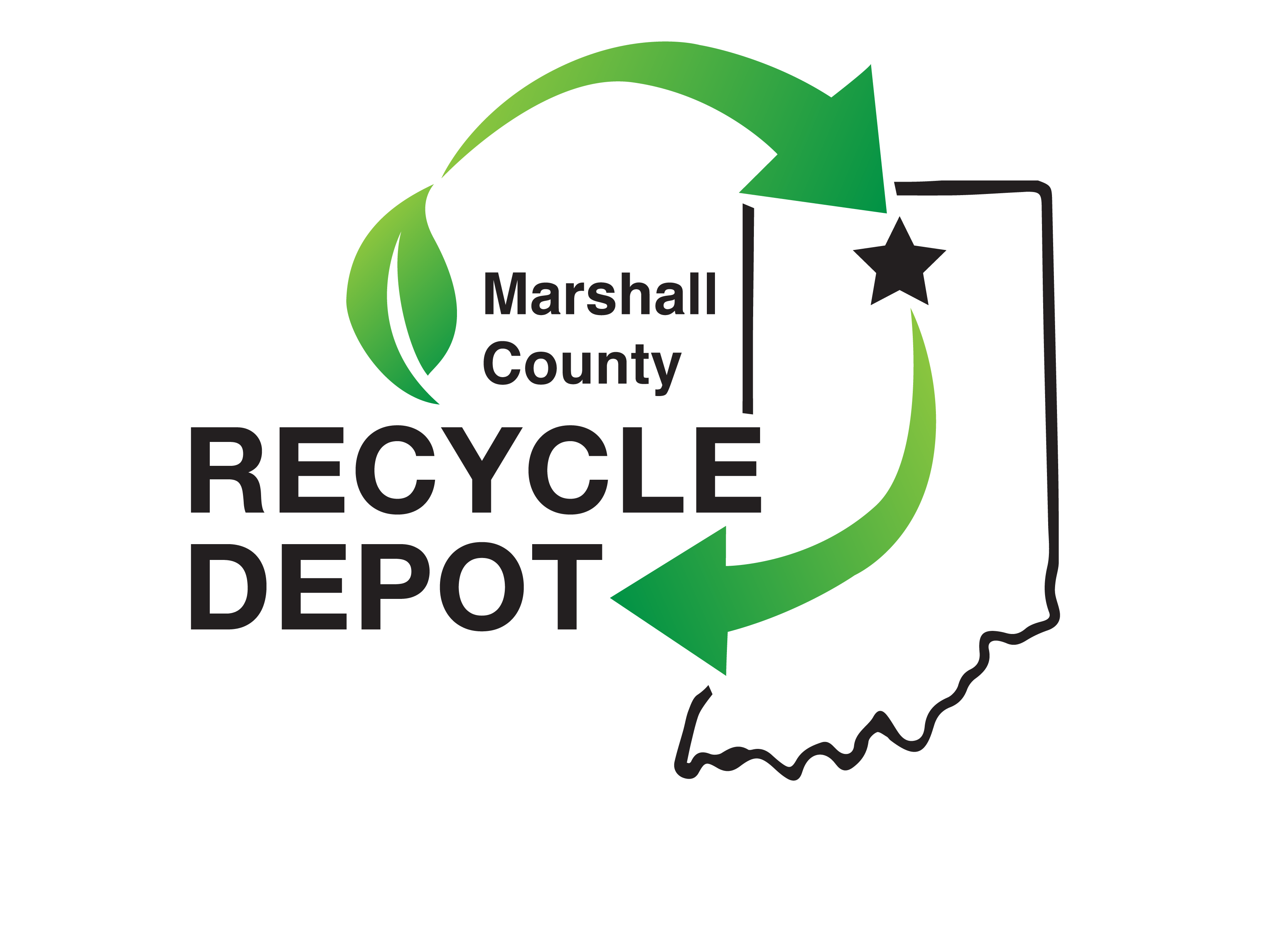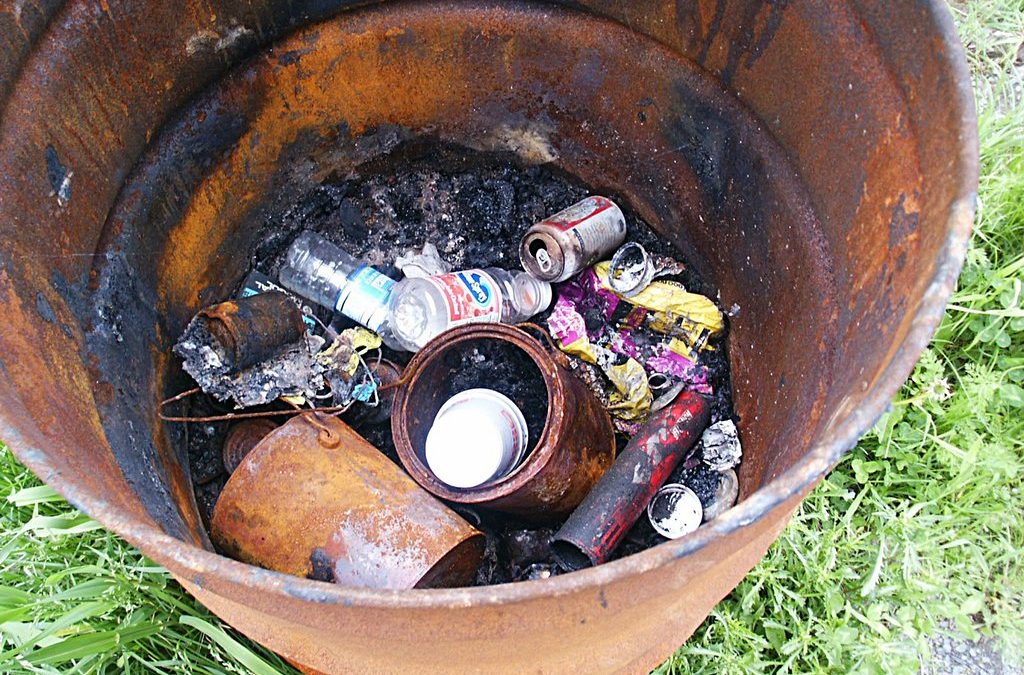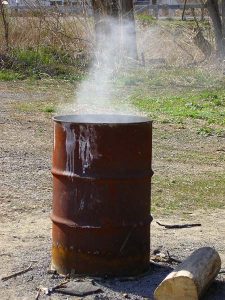Depot patrons who tell me they burn their trash are often surprised when I remind them that open trash burning is illegal in Indiana.
Illegal, as in “against the law.”
The most common response I receive is “We’ve burned our trash for fifty years!” And that’s understandable. In a rural county like ours, many people grew up in the country with a burn barrel out back. One resident told me that when she was a kid, burning trash was her favorite household chore.
Burn piles hark back to the time before regular trash pick-up. Before the 1940’s, people in most rural areas had to manage their own garbage. Commercial garbage services were not available. Burning or burying trash was the accepted solution for all the stuff they couldn’t re-purpose, redeem, recycle, feed to the livestock, or toss on the manure pile.
Why did the State of Indiana ban trash burning? Safety reasons, of course, because open burning risks damage to property and people if the fire gets out of control. Health reasons, too, because open burning contributes to poor air quality for everyone. And here’s why: nowadays our burn piles contain more toxic materials than they used to. People burn textiles, treated lumber, paper, or plastics. These items are safe … unt il they are burned.
il they are burned.
Paper contains chemicals that become pollutants when they combust. The inks in colored paper—such as inserts in newspapers or pizza boxes—contain toxic metals that are released as particulates during burning. Treated lumber contains arsenic. If you burn treated lumber, you are creating a chemical reaction that releases a known poison into the air.
All plastics break down into a chemical called dioxin. Dioxin, a known human carcinogen, also disrupts children’s endocrine systems and causes developmental problems. When burned in proximity to livestock and food crops, dioxin contaminates our food supply. The U.S. EPA estimates that one burn barrel (from an average family of four) can produce as much or more dioxin as a full-scale municipal waste incinerator burning 200 tons per day (source: Minnesota Pollution Control Agency).
Even burning yard waste dirties the air. Five pounds of leaves creates about one pound of air pollution, according to the Indiana Department of Environmental Management. Smoke is an accumulation of particulates, tiny pieces of carbon and other substances that embed themselves in our lung tissue. For elderly people with emphysema, people with asthma, or young children with developing lungs, regular exposure to pollution has been proven to cause serious, long-lasting damage.
If you burn your trash:
- Reduce your waste: use reusable food containers instead of disposable ones. Conserve office paper by printing on both sides. Switch to cloth napkins and avoid disposable kitchenware. Donate used household goods instead of burning them. Buy durable, quality goods that will last.
- Recycle as much as you can. In Marshall County, our county recycling ordinance means that all waste haulers must include recycling services with curbside trash pick-up. Be sure to ask your waste hauler what materials they would like you to put in the bin; most company websites have a list to follow. Bring batteries, light bulbs, and other hazardous household waste to the Recycle Depot (see our complete list on our website: myrecycledepot.org).
 Consider composting. Burning clean yard waste is not illegal outside of city limits, but compost has value as a soil amendment and fertilizer. Talk to the Purdue Extension Educator or the Recycle Depot staff for more information on building a compost pile. Renting a chipper is another way to reduce yard waste into a usable mulch.
Consider composting. Burning clean yard waste is not illegal outside of city limits, but compost has value as a soil amendment and fertilizer. Talk to the Purdue Extension Educator or the Recycle Depot staff for more information on building a compost pile. Renting a chipper is another way to reduce yard waste into a usable mulch.- Lastly, hire a waste hauler to come pick up your garbage. Burning garbage does not reduce waste; it causes pollution. Trash is safer for people in a municipal landfill than buried or burned. Most waste haulers offer lower-cost services for those on a fixed income and assistance for the disabled. (Don’t know who to call? Talk to staff at the Recycle Depot).
The risks of burning trash outweigh any convenience or cost-savings it might have. At the very least, you can be reported and fined for the practice. Retire the barrel and take responsibility for your waste.
Want more information on burning trash? Here’s a publication by the Minnesota Pollution Control Agency that pulls no punches.


 Consider compostin
Consider compostin